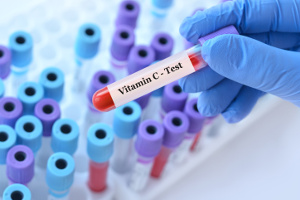 Most people are unaware of vitamin C’s key role in mental health and mood. According to a large population study that is published in Frontiers in Nutrition, having higher levels of vitamin C in the blood is linked to a lower risk of depression. The official dietary recommendations for vitamin C only focus on preventing the potentially lethal deficiency disease called scurvy, and things like stress, ageing, stimulant use, overweight, infections, and chronic illnesses can increase your need for the nutrient.
Most people are unaware of vitamin C’s key role in mental health and mood. According to a large population study that is published in Frontiers in Nutrition, having higher levels of vitamin C in the blood is linked to a lower risk of depression. The official dietary recommendations for vitamin C only focus on preventing the potentially lethal deficiency disease called scurvy, and things like stress, ageing, stimulant use, overweight, infections, and chronic illnesses can increase your need for the nutrient.
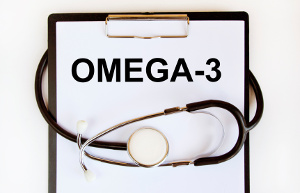 Depression is often caused by brain inflammation, and it looks as if high-dosed supplementation with EPA, a type of omega-3 fatty acids found in fish oil, may help as it reduces depression in patients with elevated inflammation markers in the blood. This was shown in a study that is published in The Journal of Clinical Psychiatry.
Depression is often caused by brain inflammation, and it looks as if high-dosed supplementation with EPA, a type of omega-3 fatty acids found in fish oil, may help as it reduces depression in patients with elevated inflammation markers in the blood. This was shown in a study that is published in The Journal of Clinical Psychiatry.
 Several studies have revealed that B vitamins strengthen the nervous system and reduce symptoms of stress. However, very few studies have looked at how the individual B vitamins work. A new placebo-controlled study that is published in the science journal, Human Psychopharmacology, appears to show that high-dosed vitamin B6 boosts the body’s formation of a certain neurotransmitter that blocks the exchange of undesirable impulses between brain cells, and this has a calming effect. In addition, vitamin B6 seems to reduce symptoms of depression.
Several studies have revealed that B vitamins strengthen the nervous system and reduce symptoms of stress. However, very few studies have looked at how the individual B vitamins work. A new placebo-controlled study that is published in the science journal, Human Psychopharmacology, appears to show that high-dosed vitamin B6 boosts the body’s formation of a certain neurotransmitter that blocks the exchange of undesirable impulses between brain cells, and this has a calming effect. In addition, vitamin B6 seems to reduce symptoms of depression.
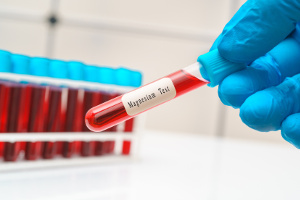 Depression is one of the largest health burdens worldwide. Although depression can be caused by a number of different things, a new Taiwanese study published in Nutrients suggests that having high blood levels of magnesium is linked to fewer signs of depression. The scientists describe how magnesium supports different enzymatic processes that are involved in the nervous system, the hormone system, and in brain receptors with a key role in depression. Unfortunately, there are things that deplete our magnesium levels such as stress, poor diets, and the use of different types of medicine. To make matters worse, having less magnesium impairs our ability to utilize vitamin D that is important for our mood.
Depression is one of the largest health burdens worldwide. Although depression can be caused by a number of different things, a new Taiwanese study published in Nutrients suggests that having high blood levels of magnesium is linked to fewer signs of depression. The scientists describe how magnesium supports different enzymatic processes that are involved in the nervous system, the hormone system, and in brain receptors with a key role in depression. Unfortunately, there are things that deplete our magnesium levels such as stress, poor diets, and the use of different types of medicine. To make matters worse, having less magnesium impairs our ability to utilize vitamin D that is important for our mood.
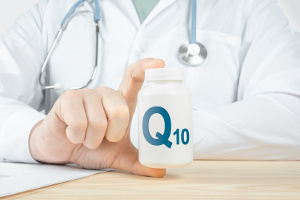 After a COVID-19 infection many people experience chronic symptoms such as fatigue, muscle pain, depression, and sleep disturbances. According to a study that is published in Clinical and Experimental Medicine, supplementing with Q10 and alpha-lipoic acid may help against tiredness and certain other symptoms. The authors describe how Q10 and alpha-lipoic acid support the cellular energy turnover in different ways and serve as antioxidants that protect cells against oxidative stress and cellular damage.
After a COVID-19 infection many people experience chronic symptoms such as fatigue, muscle pain, depression, and sleep disturbances. According to a study that is published in Clinical and Experimental Medicine, supplementing with Q10 and alpha-lipoic acid may help against tiredness and certain other symptoms. The authors describe how Q10 and alpha-lipoic acid support the cellular energy turnover in different ways and serve as antioxidants that protect cells against oxidative stress and cellular damage.
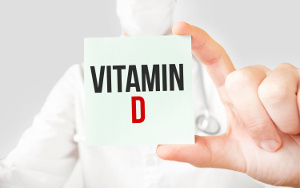 Several studies have shown a direct link between depression and lack of vitamin D, both of which are common problems. Vitamin D has numerous functions in the brain and nervous system and it helps counteract local inflammation that is often seen in connection with depression. According to a new Finish meta-analysis, high-dosed vitamin D supplementation can even ameliorate symptoms of depression. The question is how to optimize blood levels of the nutrient in order to prevent the disease.
Several studies have shown a direct link between depression and lack of vitamin D, both of which are common problems. Vitamin D has numerous functions in the brain and nervous system and it helps counteract local inflammation that is often seen in connection with depression. According to a new Finish meta-analysis, high-dosed vitamin D supplementation can even ameliorate symptoms of depression. The question is how to optimize blood levels of the nutrient in order to prevent the disease.
 Most people are unaware of vitamin C’s key role in mental health and mood. According to a large population study that is published in Frontiers in Nutrition, having higher levels of vitamin C in the blood is linked to a lower risk of depression. The official dietary recommendations for vitamin C only focus on preventing the potentially lethal deficiency disease called scurvy, and things like stress, ageing, stimulant use, overweight, infections, and chronic illnesses can increase your need for the nutrient.
Most people are unaware of vitamin C’s key role in mental health and mood. According to a large population study that is published in Frontiers in Nutrition, having higher levels of vitamin C in the blood is linked to a lower risk of depression. The official dietary recommendations for vitamin C only focus on preventing the potentially lethal deficiency disease called scurvy, and things like stress, ageing, stimulant use, overweight, infections, and chronic illnesses can increase your need for the nutrient.







 Magnesium is important for numerous physiological functions. In a new review article published in Nutrients, researchers have looked at the relation between the body’s magnesium levels and a variety of different ageing markers. Also, they hypothesize that optimal intake of magnesium throughout life is an easy and inexpensive way to obtain healthy ageing.
Magnesium is important for numerous physiological functions. In a new review article published in Nutrients, researchers have looked at the relation between the body’s magnesium levels and a variety of different ageing markers. Also, they hypothesize that optimal intake of magnesium throughout life is an easy and inexpensive way to obtain healthy ageing.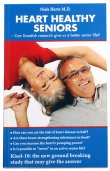

 Depression is often caused by brain inflammation, and it looks as if high-dosed supplementation with EPA, a type of omega-3 fatty acids found in fish oil, may help as it reduces depression in patients with elevated inflammation markers in the blood. This was shown in a study that is published in The Journal of Clinical Psychiatry.
Depression is often caused by brain inflammation, and it looks as if high-dosed supplementation with EPA, a type of omega-3 fatty acids found in fish oil, may help as it reduces depression in patients with elevated inflammation markers in the blood. This was shown in a study that is published in The Journal of Clinical Psychiatry. Several studies have revealed that B vitamins strengthen the nervous system and reduce symptoms of stress. However, very few studies have looked at how the individual B vitamins work. A new placebo-controlled study that is published in the science journal, Human Psychopharmacology, appears to show that high-dosed vitamin B6 boosts the body’s formation of a certain neurotransmitter that blocks the exchange of undesirable impulses between brain cells, and this has a calming effect. In addition, vitamin B6 seems to reduce symptoms of depression
Several studies have revealed that B vitamins strengthen the nervous system and reduce symptoms of stress. However, very few studies have looked at how the individual B vitamins work. A new placebo-controlled study that is published in the science journal, Human Psychopharmacology, appears to show that high-dosed vitamin B6 boosts the body’s formation of a certain neurotransmitter that blocks the exchange of undesirable impulses between brain cells, and this has a calming effect. In addition, vitamin B6 seems to reduce symptoms of depression Depression is one of the largest health burdens worldwide. Although depression can be caused by a number of different things, a new Taiwanese study published in Nutrients suggests that having high blood levels of magnesium is linked to fewer signs of depression. The scientists describe how magnesium supports different enzymatic processes that are involved in the nervous system, the hormone system, and in brain receptors with a key role in depression. Unfortunately, there are things that deplete our magnesium levels such as stress, poor diets, and the use of different types of medicine. To make matters worse, having less magnesium impairs our ability to utilize vitamin D that is important for our mood.
Depression is one of the largest health burdens worldwide. Although depression can be caused by a number of different things, a new Taiwanese study published in Nutrients suggests that having high blood levels of magnesium is linked to fewer signs of depression. The scientists describe how magnesium supports different enzymatic processes that are involved in the nervous system, the hormone system, and in brain receptors with a key role in depression. Unfortunately, there are things that deplete our magnesium levels such as stress, poor diets, and the use of different types of medicine. To make matters worse, having less magnesium impairs our ability to utilize vitamin D that is important for our mood. After a COVID-19 infection many people experience chronic symptoms such as fatigue, muscle pain, depression, and sleep disturbances. According to a study that is published in Clinical and Experimental Medicine, supplementing with Q10 and alpha-lipoic acid may help against tiredness and certain other symptoms. The authors describe how Q10 and alpha-lipoic acid support the cellular energy turnover in different ways and serve as antioxidants that protect cells against oxidative stress and cellular damage.
After a COVID-19 infection many people experience chronic symptoms such as fatigue, muscle pain, depression, and sleep disturbances. According to a study that is published in Clinical and Experimental Medicine, supplementing with Q10 and alpha-lipoic acid may help against tiredness and certain other symptoms. The authors describe how Q10 and alpha-lipoic acid support the cellular energy turnover in different ways and serve as antioxidants that protect cells against oxidative stress and cellular damage. Several studies have shown a direct link between depression and lack of vitamin D, both of which are common problems. Vitamin D has numerous functions in the brain and nervous system and it helps counteract local inflammation that is often seen in connection with depression. According to a new Finish meta-analysis, high-dosed vitamin D supplementation can even ameliorate symptoms of depression. The question is how to optimize blood levels of the nutrient in order to prevent the disease.
Several studies have shown a direct link between depression and lack of vitamin D, both of which are common problems. Vitamin D has numerous functions in the brain and nervous system and it helps counteract local inflammation that is often seen in connection with depression. According to a new Finish meta-analysis, high-dosed vitamin D supplementation can even ameliorate symptoms of depression. The question is how to optimize blood levels of the nutrient in order to prevent the disease. "After about one week of taking the Q10 supplement I could feel a huge difference," says 23-year old Alan Piccini, who has been suffering from extreme fatigue and muscle aches ever since he was a child.
"After about one week of taking the Q10 supplement I could feel a huge difference," says 23-year old Alan Piccini, who has been suffering from extreme fatigue and muscle aches ever since he was a child. “Taking capsules with co-enzyme Q10 has freed me of the severe side effects of my cholesterol lowering medicine,” Mrs Franken explains.
“Taking capsules with co-enzyme Q10 has freed me of the severe side effects of my cholesterol lowering medicine,” Mrs Franken explains.